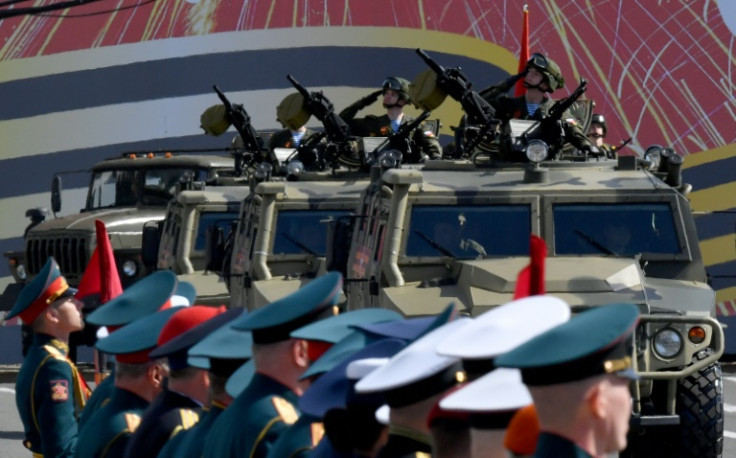Pressing Russia, US Shares Nuclear Warhead Data Under Treaty

The United States publicly released data on its nuclear arsenal Monday and pressed Russia to do the same after Moscow said it was suspending participation in New START, the last arms control treaty between the two powers.
The disclosure amounts to a quick shift by the United States, which said in March it would no longer share information under New START, reciprocating the move by Russia whose invasion of Ukraine has led to a nosedive in relations with the West.
"The United States continues to view transparency among nuclear weapon states as extremely valuable for reducing the likelihood of misperception, miscalculation and costly arms competitions," a State Department statement said.
"The United States calls on the Russian Federation to comply with its legally binding obligations by returning to full implementation of the New START Treaty and all the stabilizing transparency and verification measures contained within it," it said.
Describing the data release as voluntary, the State Department said that the United States had 1,419 deployed nuclear warheads as of March 1.
The figure was down from 1,515 in March 2022 and within the 1,550 limit set by the treaty signed in 2010. Last year, Russia said it had deployed 1,474 nuclear warheads.
The US warheads are on 662 intercontinental ballistic missiles and other deployed delivery systems, down from 686 a year earlier and within the New START limit of 700. Russia reported 526 a year earlier.
The United States again said it retained a total stock of 800 delivery systems, including those not deployed, the same as a year before and the maximum allowed by the treaty.
New START, a legacy of the Cold War, was signed by former presidents Barack Obama and Dmitry Medvedev at a warmer point in relations and had the dual aims of limiting nuclear weapons and increasing transparency.
President Vladimir Putin, in a February address on the anniversary of his invasion of Ukraine, announced that Russia was suspending participation in the treaty although he stopped short of withdrawing from it.
President Joe Biden extended New START, which was set to expire, by five years immediately after entering office in 2021.
The previous US administration of Donald Trump had held off on the treaty, saying it was unfair by making no demands of China, whose nuclear arsenal is significantly smaller than those of Russia and the United States but is expected to grow quickly.
© Copyright AFP {{Year}}. All rights reserved.





















